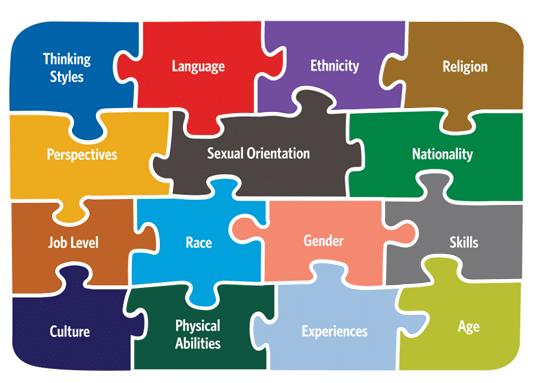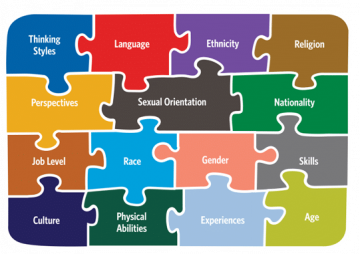This year I started working as a writer and media specialist for the Utah Women & Leadership Project at UVU whose goal is “To strengthen the impact of Utah girls and women through informing, engaging, and developing their voices, confidence, influence, and leadership.” It’s been a pleasure to dive into our research and get a crash course in gender and leadership.
The research I’ve read variations of again and again that keeps me awake at night is about the benefits of diversity. There are tons of studies about boards just comprised of men versus ones where women are present and listened to. Companies with more women on their boards outperform those with few or no women. Susan Madsen, the Project founder, asserts, “The research globally, nationally and in Utah continues to say that when men and women both work together, the decisions made are more innovative. They’re creative. You have more options of things on the table when you bring people that are from different perspectives together.” It’s not just nice when “the boys include the girls,” it’s smart and productive.
Of course we women of the Church have always believed this. When a meeting house has the bathroom super far from the primary room, we automatically think, clearly no woman was consulted on the blueprints. And when the bishop announces the young men get to kayak down the Snake River while the girls stay home and quilt, we know who wasn’t included in funding distribution decisions. But it’s one thing to intuitively know something and another to read Harvard Business Review and Forbes and pages and pages of research that validate the simple truth that all of us benefit when women are part of the conversation and suffer when they aren’t. It makes it harder to watch bishoprics and stake presidencies make decisions without the input of people who mirror more than half of the congregations being affected. As I scroll Facebook and see headlines about Mormon clergy gone horribly wrong, I wonder if those men would have been put in their positions of power if A SINGLE WOMAN HAD BEEN CONSULTED about his character. When a stake is getting a new president, the local bishops are consulted, General Authorities weigh in, etc. But not a single woman is asked, “How do you feel about Brother X. Does he have trouble working with and taking counsel from women? Does he have a creeper vibe? Does he ask inappropriate temple recommend questions?” Things that most men, no matter how feminist or enlightened, would have no clue about. Men can behave perfectly for other men but turn into entirely different creatures when interacting with women.
But this diversity is not just about gender. This principle of improved decision making and creativity holds true when you vary factors such as age, ability, race, sexuality, etc. One recent study in Forbes showed that diverse teams make better decisions 87% of the time. And they make those decisions faster and with half the meetings. HALF THE MEETINGS. Imagine how people of color feel when coming in to a Church where every representation of the Savior is blue eyed and fair. It never occurred to me how ridiculous this is until I spent a few Sundays in Botswana and South Africa and found myself longing for a Black Jesus that would reflect the faces of the saints there. Similarly it wasn’t until a dear friend developed ALS that I went full on accessibility warrior and hunted down the area seventy to make sure plans were made to install an elevator in our local building. I’d attended that ward for two decades, and while I noticed there was no elevator, I’m ashamed to say I took no action until the situation affected someone in my inner circle. And while I may really think someone is enlightened and ready for a calling, as a white het cis able bodied woman, I have no idea how they’d treat a trans member etc. My point? The Church needs to actively create decision making bodies that are diverse and better representative of the folks in the pews, or the folks we want in the pews.
Bottom line, while sameness may make us feel more comfortable, it is the enemy of growth. Diversity is not the enemy of unity, but a prerequisite. As it say in Corinthians 12, “For the body is not one member, but many… there should be no schism in the body; but that the members should have the same care one for another. And whether one member suffer, all the members suffer with it; or one member be honoured, all the members rejoice with it. Now ye are the body of Christ, and members in particular.” Zion can never be achieved until we understand that acknowledging and promoting the value of our differences will benefit the whole.





9 Responses
“While sameness may make us feel more comfortable, it is the enemy of growth.” Yup! Thank you for this, Heather. We all have different experiences in the church and in order to improve everyone’s experiences, we have to take advice and counsel from many different kinds of people, not just a small group of mostly white cis-het men.
So well said, Heather! Amen! In the church we need men in leadership to realize that “I think about you and pray about your needs” is not the same as having that person with you at the table. Thinking and praying are no substitute for real-life partnership.
I love this!
I recently spoke to a high councilor about my frustration that no women were included in the twice-a-month high council meetings that are the main organization for the stake. He smiled condescendingly and said “well, you realize that we are all married, so women’s opinions are included more than you think in our meetings.” *face palm*
Having a wife does not make you a woman. Also, the fact that all men who attend that meeting are married also reminds me that not only are women not included, but singles are excluded as well, making the men in that room representatives of only about 30% of our stake adult population.
Thanks for this post! We need more awareness of the benefits of diverse leadership groups!
Amen!
Terrific post.
How’s this for diversity, 1st Presidency and Quorum of the 12 circa. 2059:
1. Abeo Chukwuemeka – Male, age 73, from the Igbo tribe in Nigeria, married with 4 children, farmer.
2. Bhavishni Uppal – Female, age 62, from India, married with 1 child, hedge fund manager.
3. Edward O. Lipton – Male, age 89, from Mississippi. Married to his husband for 58 years; 2 adopted daughters; mechanic.
4. Benita Maria Olivares – Female, age 65, from Peru, divorced, 7 children, restaurateur.
5. Anna Belem Andrade – Female, age 48, from Brazil, married with 2 children, marine biologist
6. Joao Andre Pereira – Male, age 71, from Brazil, never married, carpenter, recovering alcoholic
7. Helen Casper Rodrigues – Female, age 41, from Texas, married, no children, daughter of Norwegian mother and Mexican father, no occupation, called to the Quorum of the 12 while in college.
8. Jonathan Parker Richford – Male, age 69, from Utah, married with 5 children, school teacher
9. Anderson L. Huntington – Male, age 37, from California, retired professional athlete, single
10. Raphael R. Marchand – Male, age 52, from France, married with 2 children, journalist, paraplegic
11. M. L. Epstein – Nonbinary gender, single, no children, age 31, from New York
12. Mi-Hi Kim – Female, age 58, from Korea, married to 4th husband, divorced twice and widowed, 3 children, bartender.
13. Alexandra G. Evers – Female, age 45, from South Carolina, married to her wife for 3 years, no children, used to be a Presbyterian minister, converted to the church 5 years ago.
14. Rupert L. Girard – Male, age 72, from Australia, retired fisherman, divorced, 2 children, war veteran, blind.
15. Maxwell G. R. Nkosi – Male, age 50, from South Africa, married with 4 children.
That’s such a beautiful list. Makes me teary to think of the possibilities.
Yes!! Love this.